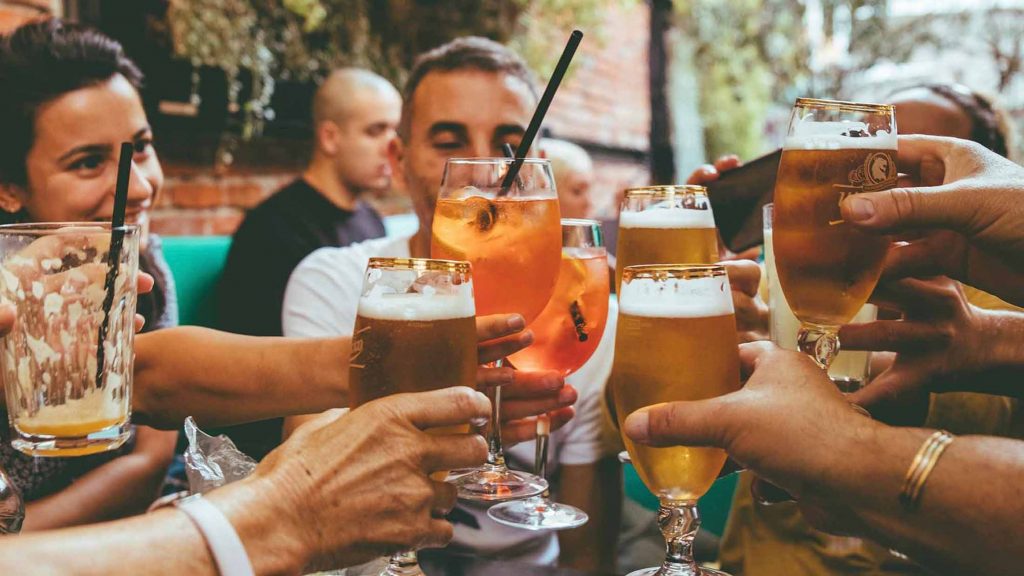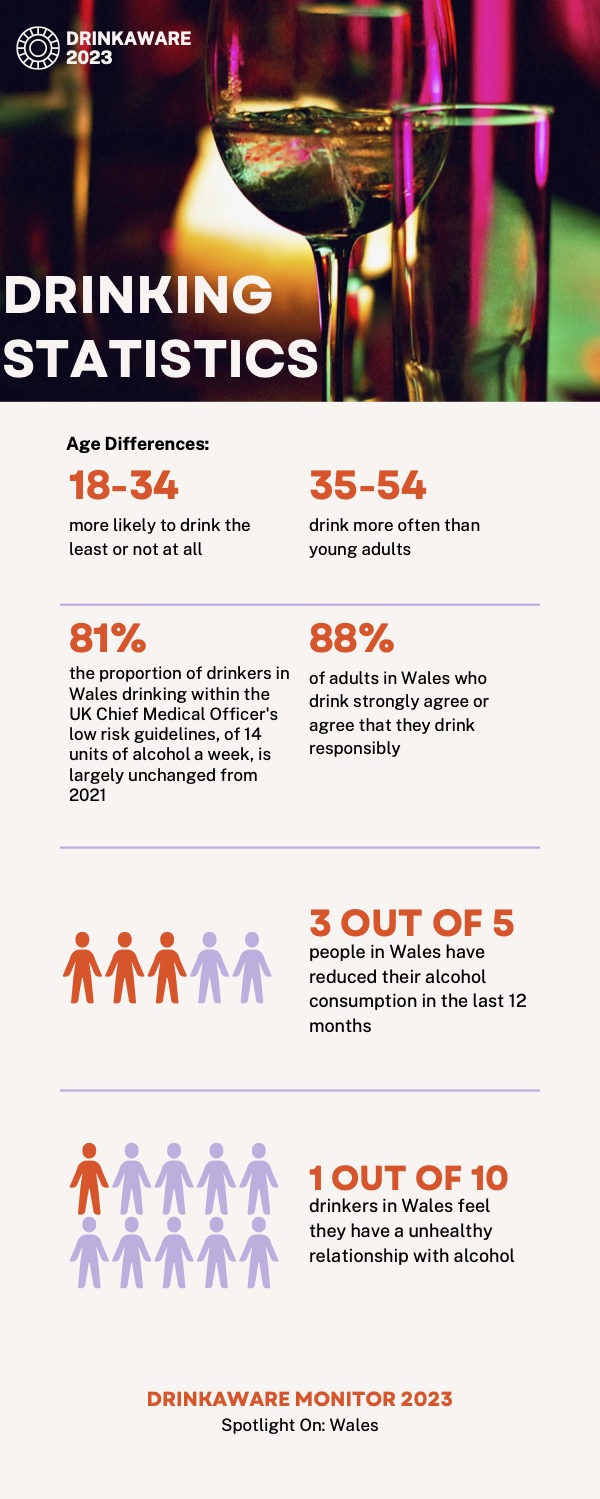Why are young people choosing the sober lifestyle over the traditional drinking habits of the generations before them?

The curtains are drawn, the room pitch black, and your body is drenched in sweat as you struggle to open your eyes. You reach out into the darkness, pawing at the large glass of water on your bedside you don’t remember pouring. You drink it in one gulp, turn over and consider the day to be a write-off and promise to yourself you will not do it again.
We have all been there: had one too many beers on a work night out or taken that last tequila shot offered, even though your eyes watered as you tried to keep it down.
But now times are changing, and more and more people are choosing to forgo a hangover in favour of a sober lifestyle. This rise in sobriety is most prevalent in the younger generation in Wales as 18–34-year-olds are most likely to drink the least or not at all according to a new report.
Young people have chosen to leave alcohol behind for many reasons. “There were times where I’d drink alcohol and act in ways I regretted: getting angry at the smallest things, feeling paranoid that people didn’t like me, etc. These were things I already struggled with, and drinking meant they could be amplified at any point.” said Georgia, a 30-year-old student nurse who has been sober for nine years.
A UK survey found 21 per cent of individuals aged 18 to 24 are not drinking alcohol, rising from 14 per cent in 2017. Additionally, two in five drinkers in Wales indicated that they have tried to reduce their alcohol consumption in the last 12 months.
Emily Power, a 29-year-old teacher from Wales founded Sober Gals Wales in June 2022 to create a safe space for sober curious/ sober women. “I think it was originally when I was first toying with the idea of sobriety. I was using Instagram and social media to follow other sober people and to find inspiration, and I noticed that there was a sober girl society, which was mainly in London, and I just was looking for something that was in Wales, and I couldn’t find it. So, I took it upon myself to start it up and see if there was any interest and obviously, we’ve got nearly 900 members now.”
“It’s become really evident that younger people are starting to question their relationship with alcohol and they’re a bit more health conscious. I’ve met students that are saying that they don’t see the appeal in going out and getting drunk every weekend anymore. There’s other things that they want to be doing. They’ve got hobbies and interests outside of that.” Emily explained.
Many have given up drinking because of the negative impacts they feel when they drink and the following days after. So much so social media has now seen a rise in the phrase ‘hangxiety,. Which means a set of psychological symptoms such as feeling anxious or depressed the morning after drinking according to Drinkaware, an independent charity which aims to reduce alcohol-related harm.
Socialising in the UK is defined by a drink in hand, with many using alcohol to ease their fears when going out. “I used to drink to try and become a more fun version of myself. Becoming sober forced me to face the fact that I actually didn’t like who I was sober or drunk, so I chose to do something about it, which was learning as much as I could about pretty much everything I could, even if I wasn’t particularly interested in it.” said Rachel Mansell from Mountain Ash.
This rise in sober living has also seen an increase the sale of non-alcoholic beverages. Drop Bear is the first women-led alcohol-free brewery in the UK and is based in Swansea. Joelle and Sarah created Drop Bear as a couple, Joelle said, “My wife and I created Drop Bear in 2019 following a personal decision to go sober. At the time, we weren’t sure whether this would be a temporary or permanent lifestyle shift, what we did immediately realise, however, was that our options for craft beer were near nonexistent. We had observed and enjoyed the rise of alcoholic craft beer over the years, and we were surprised that there was nothing of the sort for people who aren’t/can’t drink. Thus began Drop Bear.”
The business has earned more than 30 awards, obtained distribution through major retailers such as Ocado, ASDA, certain Co-op, and Tesco locations, introduced their beer products in can form, and achieved an impressive sales increase of 2,000% in 2020.
On the rise of younger people becoming sober, Joelle said, “It’s really interesting and surprising how quickly this shift in attitudes of youngsters has happened. It will undoubtedly force drinks producers to explore new product development further and drive innovation as their more traditional products won’t appeal to them.”
However, Wales still has a large binge drinking culture with 18-34 year olds most likely to binge drink at least once a month. “I think as a whole, the UK does need to question its binge drinking culture, and I’m hoping that seeing the rise in young people who are choosing not to drink will hopefully change that culture.” Emily explained.
The question remains whether this movement towards sobriety for younger people is here to stay or simply a passing trend. Joelle said, “I think we’re a far way off having a sober society in Wales, however, a cultural shift towards moderation is already happening. Attitudes are changing with younger generations holding more buying power, but they’re also changing as people realise that alcohol free options can still taste great and provide an interesting experience.”
Looking to the future, Emily said, “My hope in an ideal world is that more people will be more accepting of sobriety and when you say, ‘I’m sober.’ nobody meets it with a surprise anymore.”

